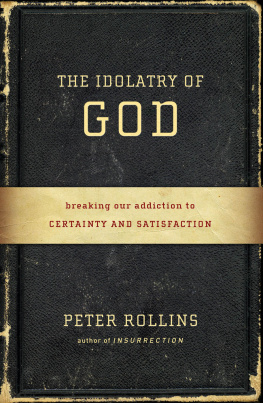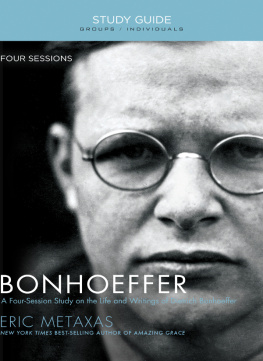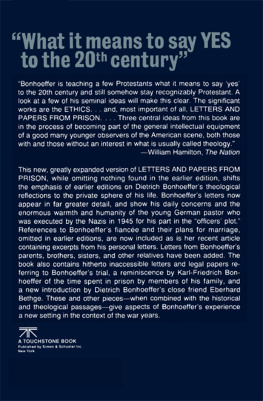THE FIDELITY OF BETRAYAL
THE FIDELITY OF BETRAYAL
TOWARDS A CHURCH BEYOND BELIEF
PETER ROLLINS
Author of How (Not) to Speak of God

The Fidelity of Betrayal: Towards a Church Beyond Belief
2008 First Printing
Copyright 2008 by Peter Rollins
ISBN: 978-1-55725-560-0
All Scripture quotations are taken from the Holy Bible, Todays New International Version TNIV Copyright 2001, 2005 by International Bible Society. All rights reserved worldwide.
Library of Congress Cataloging-in-Publication Data
Rollins, Peter.
The fidelity of betrayal : towards a church beyond belief / Peter
Rollins.
p. cm.
Includes bibliographical references.
ISBN 978-1-55725-560-0
1. God (Christianity) 2. Negative theologyChristianity. 3. Church
renewal. 4. Non-institutional churches. I. Title.
BT103.R65 2008
230dc22
2008006181
10 9 8 7 6 5 4 3 2 1
All rights reserved. No portion of this book may be reproduced, stored in an electronic retrieval system, or transmitted in any form or by any meanselectronic, mechanical, photocopying, recording, or any otherexcept for brief quotations in printed reviews, without the prior written permission of the publisher.
Published by Paraclete Press
Brewster, Massachusetts
www.paracletepress.com
Printed in the United States of America
For my friends who know what it is to embrace their faith by betraying it with a kiss.
CONTENTS
PROLOGUE
The Caretakers Trial
There was once a small town filled with believers who sought to act always in obedience to the voice of God. When faced with difficult situations the leaders of the community would often be found deep in prayer, or searching the Scriptures for guidance and wisdom.
Late one evening, in the middle of winter, a young man from the neighboring city arrived at the gates of the towns little church seeking refuge. The caretaker immediately let him in and, seeing that he was hungry and cold, provided a meal and some warm clothes. After he had eaten, the young man explained how he had fled the city because the authorities had labeled him a political dissident. It turned out that the man had been critical of both the government and the church in his work as a journalist. The caretaker brought the young man back to his home and allowed him to stay until a plan had been worked out concerning what to do next.
When the priest was informed about what had happened, he called the leaders of the town together in order to work out what ought to be done. After an intense discussion it was agreed that the man should be handed over to the authorities in order to face up to the charges that had been made against him. But the caretaker protested, saying, This man has committed no crimes, he has merely criticized what he believes to be the injustices perpetrated by authorities in the name of God.
What you say may be true, replied the priest, but his presence puts the whole of this town in danger. What if the authorities find out where he is and learn that we protected him.
But the caretaker refused to hand him over to the priest, saying, He is my guest, and while he is under my roof I will ensure that no harm comes to him. If you take him from me by force then I will publicly attest to having helped him and suffer the same injustice as my guest.
The caretaker was well loved by the people, and the priest had no intention of letting something happen to him. So the leaders went away again and this time searched the Scriptures for an answer, for they knew that the caretaker was a man of deep faith. After a whole night of poring over the Scriptures the leaders came back to the caretaker, saying, We have read the sacred book all through the night seeking guidance and found that it tells us that we must respect the authorities of this land and witness to the truth of faith through submission to them.
But the caretaker also knew the sacred words of Scripture, and he told them that the Bible also asked that we care for those who suffer and are persecuted. There and then the leaders began to pray fervently. They beseeched God to speak to them, not as a still small voice in their conscience, but rather in the way that he had spoken to Abraham and Moses. They begged that God would communicate directly to them and to the caretaker so that the issue could finally be resolved. Sure enough, the sky began to darken, and God descended from heaven, saying, The priest and elders speak the truth, my friend. In order to protect the town this man must be handed over to the authorities.
The caretaker, a man of deep faith, looked up to heaven and replied, If you want me to remain faithful to you, my God, then I can do nothing but refuse your advice. For you have already demanded that I look after this man. You have written that I must protect him at all costs. Your words of love have been spelled out by the lines of this mans face, your text is found in the texture of his flesh. And so, my God, I defy you precisely so as to remain faithful to you.
With this God smiled and quietly withdrew, confident that the matter had finally been settled.
INTRODUCTION
What Would Judas Do?
In the 1990s the phrase What Would Jesus Do? became a popular slogan for millions of Christians across the English-speaking world. Originally inspired by the book In His Steps by Charles Sheldon, these words were quickly reduced to the abbreviation WWJD and etched onto countless bracelets as a way of reminding the bearer that they held Jesus up as the ultimate authority in moral, political, and religious matters. These bracelets quickly became a popular accessory among Christian teenagers, so much so that the letters WWJD started to appear on a whole range of consumerist products such as jewelry, bumper stickers, badges, bookmarks, key rings, and even underwear.
Of the various predictable parodies that arose in the aftermath of this widespread phenomenon, there was one that struck me as particularly intriguing and insightful. The parody in question came to my attention via a Web site that playfully offered the following advice: When life throws you a curveball, remember to just ask yourself: what would Judas do? Although the actual intention of the Web site was superficial and satirical in tone (carrying mock testimonies of people who had considered this question and then gone on to lie, steal, and seduce), I was struck at the time by the thought that, far from offering some amoral, antireligious sentiment, the question What Would Judas Do? could perhaps offer us a tantalizing hint of what it would mean to ask, What Would Jesus Do?
In other words, what would Jesus do when confronted with Christianity today? Would Jesus do what Judas did, and betray it? In saying this I am not hinting at the rather mundane insight that Jesus would betray the anemic, inauthentic, self-serving Churchianity that so often festers quietly under the banner of Christianity today. I am not asking whether Jesus would turn the tables on what passes as contemporary Christianity in favor of a more robust and radical version that may have once existed in an age long past. Rather, by asking whether Jesus would betray Christianity as Judas betrayed Christ, I am asking if Jesus would plot the downfall of Christianity in every form that it takes. Or rather, to be more precise, I am asking whether Christianity, in its most sublime and revolutionary state, always demands an act of betrayal from the Faithful. In short, is Christianity, at its most radical, always marked by a kiss, forever forsaking itself, eternally at war with its own manifestation.
Next page














